Clients
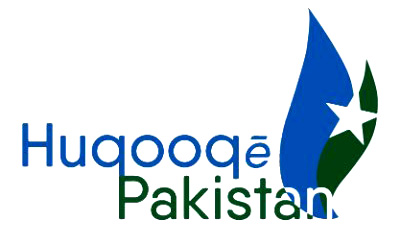
In 2019, the Ministry of Human Rights (MoHR), with support from the European Union initiated the Huqooq-e-Pakistan (HeP) Project aimed to promote awareness and understanding of human rights issues in targeted districts across Pakistan.
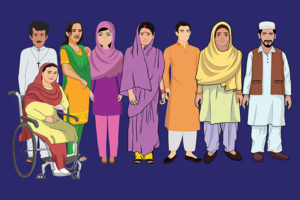
The Aawaz II programme – funded by Foreign & Commonwealth Development Office (FCDO) UK aims to tackle child labour, early and forced marriage, gender-based violence (GBV) and conflict in Punjab and Khyber Pakhtunkhwa (KP). The project works with civil society partners in communities, particularly with vulnerable populations, to reduce exploitation...
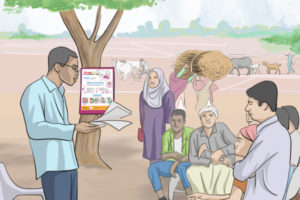
Infectious disease outbreaks do not respect international boundaries and pathogens can spread quickly in today’s interconnected world, presenting a threat to all countries. Therefore, the need to prevent, detect and respond to any infectious disease that poses a persistent threat to regional and global health security remains a priority...
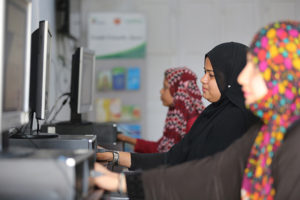
Menstruation is a normal biological process. Still, in most parts of the world, it is highly stigmatized and treated in silence and with shame. Pakistan, unfortunately, is no different. In Pakistan, adolescent girls have extremely limited knowledge of menstruation. Their main source of menstrual information are their immediate family members, i.e. mothers or elder sister...
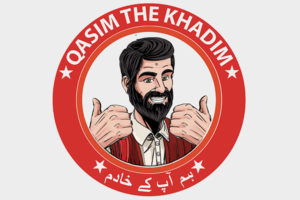
Center has been working with the LoGo Programme’s result area State-Citizen Dialogue for development and implementation of a Communication for Development (C4D) Campaign to support citizen’s voices, rights and responsibilities in Pakistan...
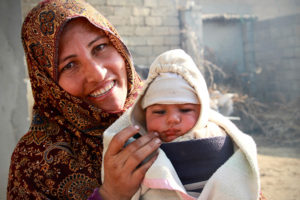
Center facilitated John Snow International (JSI) in its communications related work for its USAID funded, Pakistan Integrated Health Systems Strengthening and Service Delivery project. The project benefitted from Center’s technical input for design and...
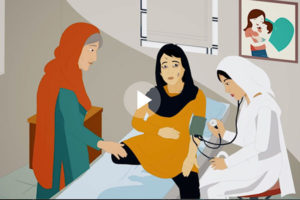
Center for Communications Programs Pakistan, henceforth Center, is facilitating WHO in development of informational materials and infographics as part of its efforts to provide technical support to Government of Pakistan, Ministry of National Health Services Regulation and provincial health departments to develop multi-sectoral health system response to Gender based Violence including Sexual Violence....
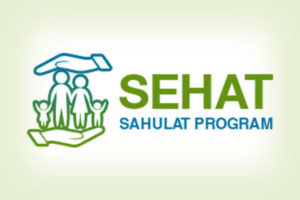
Social Health Protection (SHP) programmes commenced in Pakistan in 2015 under two distinct names i.e. Sehat Sahulat Program (SSP) - previously known as Prime Minister’s National Health Program (PMNHP) - at the federal level and...
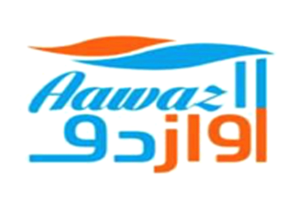
The AAWAZ II programme is a DFID funded 5-year initiative which will work with local communities to promote; the rights of the most vulnerable population including children, women, youth, religious minorities and people with disabilities to strengthen their control over their own development. The programme has a focus on exclusion and exploitation issues in local communities that disproportionately affects vulnerable and marginalized groups. The AAWAZ II programme is the successor initiative to AAWAZ I (a voice and accountability programme implemented between 2012-2018, also funded by DFID) that reached over 7 million poor and marginalised people across 45 districts of KP and Punjab....
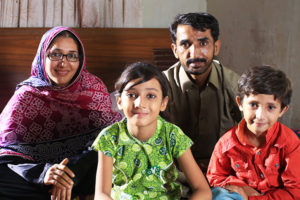
Center for Communications Programs Pakistan facilitated Aman Foundation in disseminating its project results to its stakeholders through strategic placement of content...
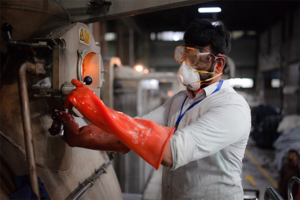
Center, as part of this assignment, will develop and execute an awakes campaign based on animated videos on the concept of Vision Zero. The concept contains seven principles...
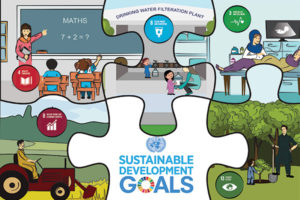
Center is working with the LoGo Programme's result-area Strengthening Local Governance for developing a different pieces of comic work, using the character of Qasim the Nazim, to improve knowledge of elected local representative...

Center is providing technical assistance to the World Health Organisation's Regional Office for the Eastern Mediterranean in developing a social media campaign on physical activity promotion...

The project is aimed at positively contributing to the textile sector and its workforce by promoting the concept of “Return on Prevention.”
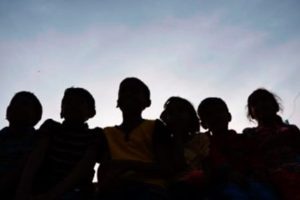
The Phase-II of the project is based on the lessons learned as well as a window of opportunity created through cultivation of support structures, networks and discourse in Phase-I of the project.
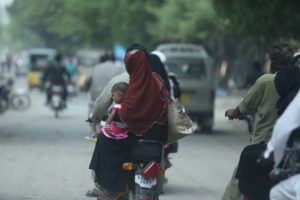
With the assistance from the Asian Development Bank and under Pakistan Road Safety Program, the Federal Ministry of Communication intended to develop a road safety campaign. The Bank, under the auspices of the Ministry of Communication, tasked NTU International to formulate different components of Pakistan Road Safety Program, including a National Road Safety Campaign. In this respect, Center assisted NTU formative information to support the development of a national road safety campaign.
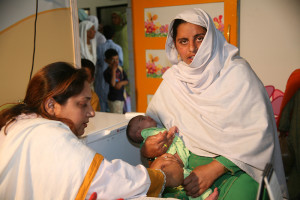
Center in Pakistan together with its parent organisation Johns Hopkins Center for Communication Programs are developing an Interpersonal Communication for Immunisation (IPC/I) package for UNICEF to help improve vaccination acceptance and ensure that babies and children are immunized according to the WHO-recommended schedule.
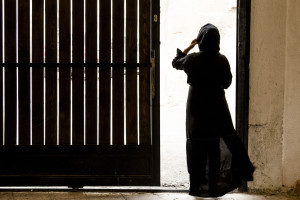
The project was aimed at creating conditions for legislative reforms and implementation against the practice of child marriage in Pakistan through a concerted advocacy campaign.

The overall objective of the assignment is to design a comprehensive communication for development (C4D) strategy for the child protection programme with an aim to influence positive attitudes and behaviours of target/participant groups.

Center is providing support to Mobilink Pakistan in designing and developing a portfolio on corporate social responsibility (CSR) portfolio for Jazz. The portfolio will cover all thematic areas, i.e. education, health, environment, disaster relief, of Jazz holistically within the overall CSR strategy of Jazz.
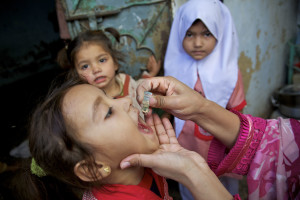
The objective of this project is to develop Advocacy Material on Oral Cholera Vaccine for the World Health Organization's (WHO) Regional Headquarters of the Eastern Mediterranean Region.
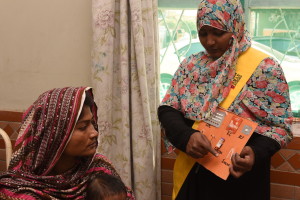
Sukh Initiative is a multi-donor funded, family planning and reproductive health project, primed by Aman Health Care Services and implemented through a consortium of local and international organizations.

In view of the potential role of the news media in Jordan, UNICEF commissioned a study to Center to assess the skills and knowledge among journalists in Jordan on issues related to violence against children.
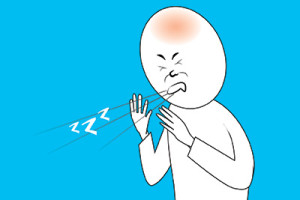
The overall goal of the project is to assist the World Health Organization Office for Eastern Mediterranean region in its efforts to improve preventive knowledge and vaccination practices related to influenza.
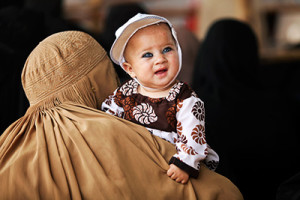
The Afghanistan Mortality Survey 2010 and Multiple Indicator Cluster Survey 2010 - 2011 show that the health situation in Afghanistan has improved considerably in last few years.
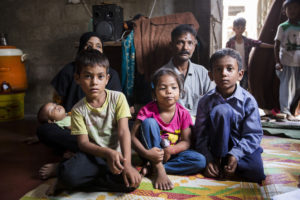
The overall goal of the project was to use advocacy channels to bring family planning as a health and life saving interventions in policy and media circles.
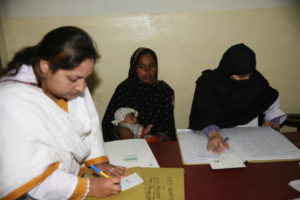
The study was conducted in 2011 in one of the districts of southern Punjab – Dera Ghazi Khan – in order to dig deeper into the dynamics of universal family planning knowledge, as reported generally in national surveys.
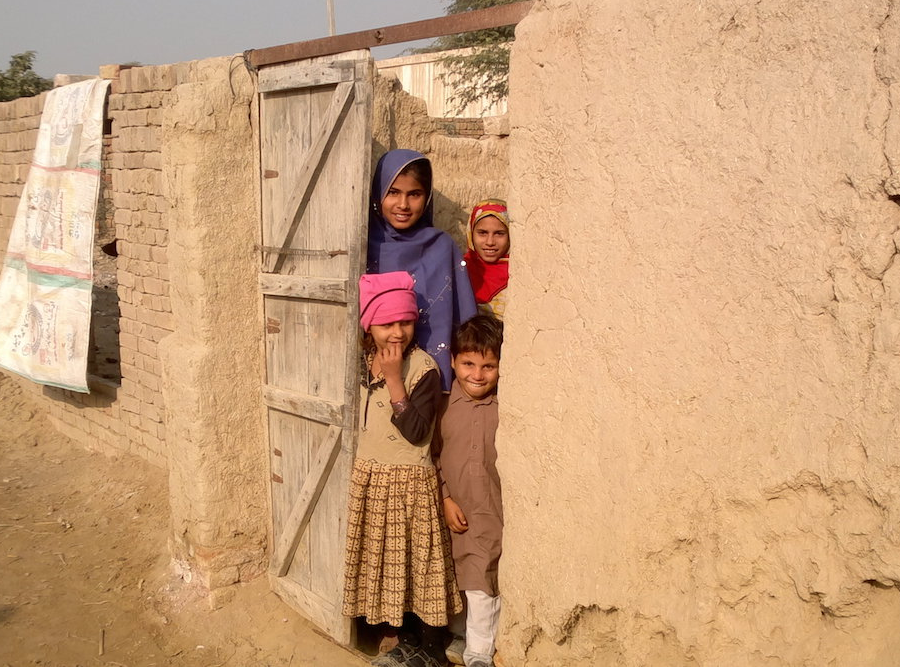
Center implemented multilevel gap analysis studies at facility, community and household levels in two provinces of Pakistan on registration of births. The studies had three broad components.
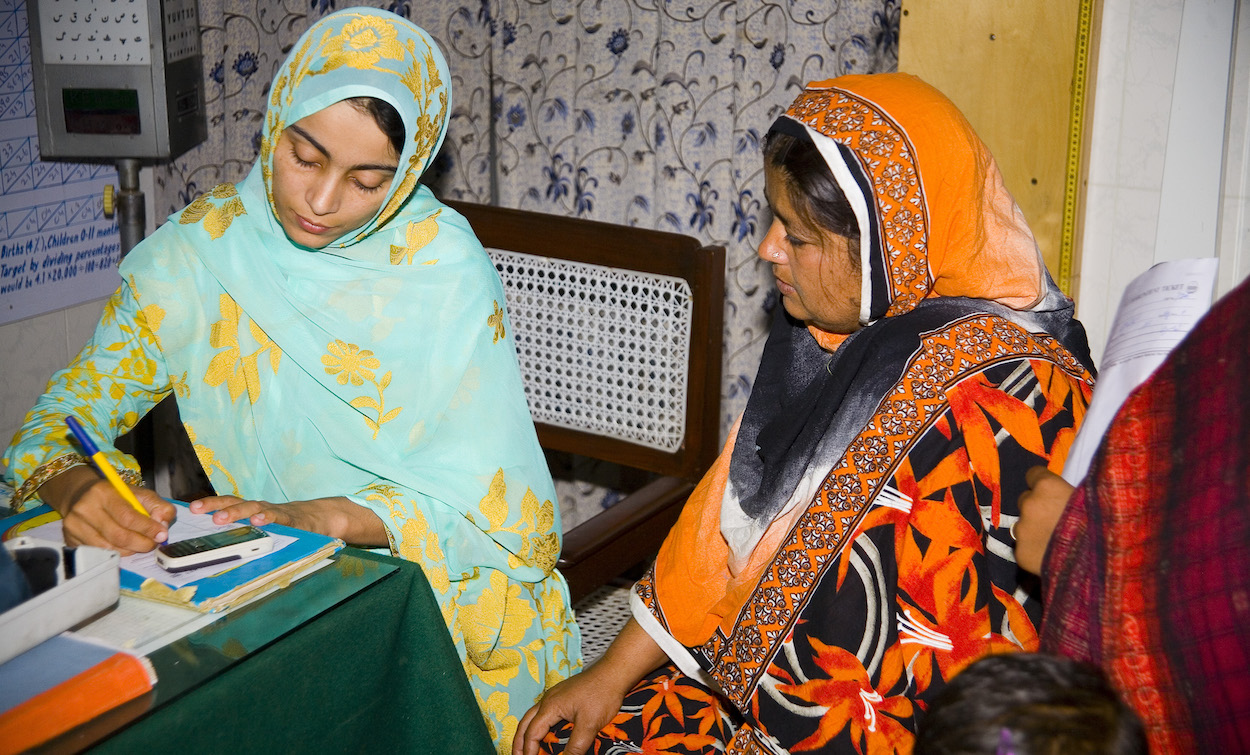
As a sub-grantee of the White Ribbon Alliance Pakistan, the Center is tasked with developing several education material to address barriers to the use of Magnesium Sulphate for the prevention and treatment of preeclampsia and eclampsia in Pakistan.
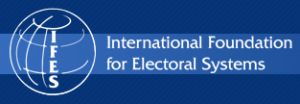
The project “Increasing Women Participation in General Elections 2013 (and Beyond) in Pakistan: A Crowdsourcing Strategy,” was implemented over a short duration of six months.
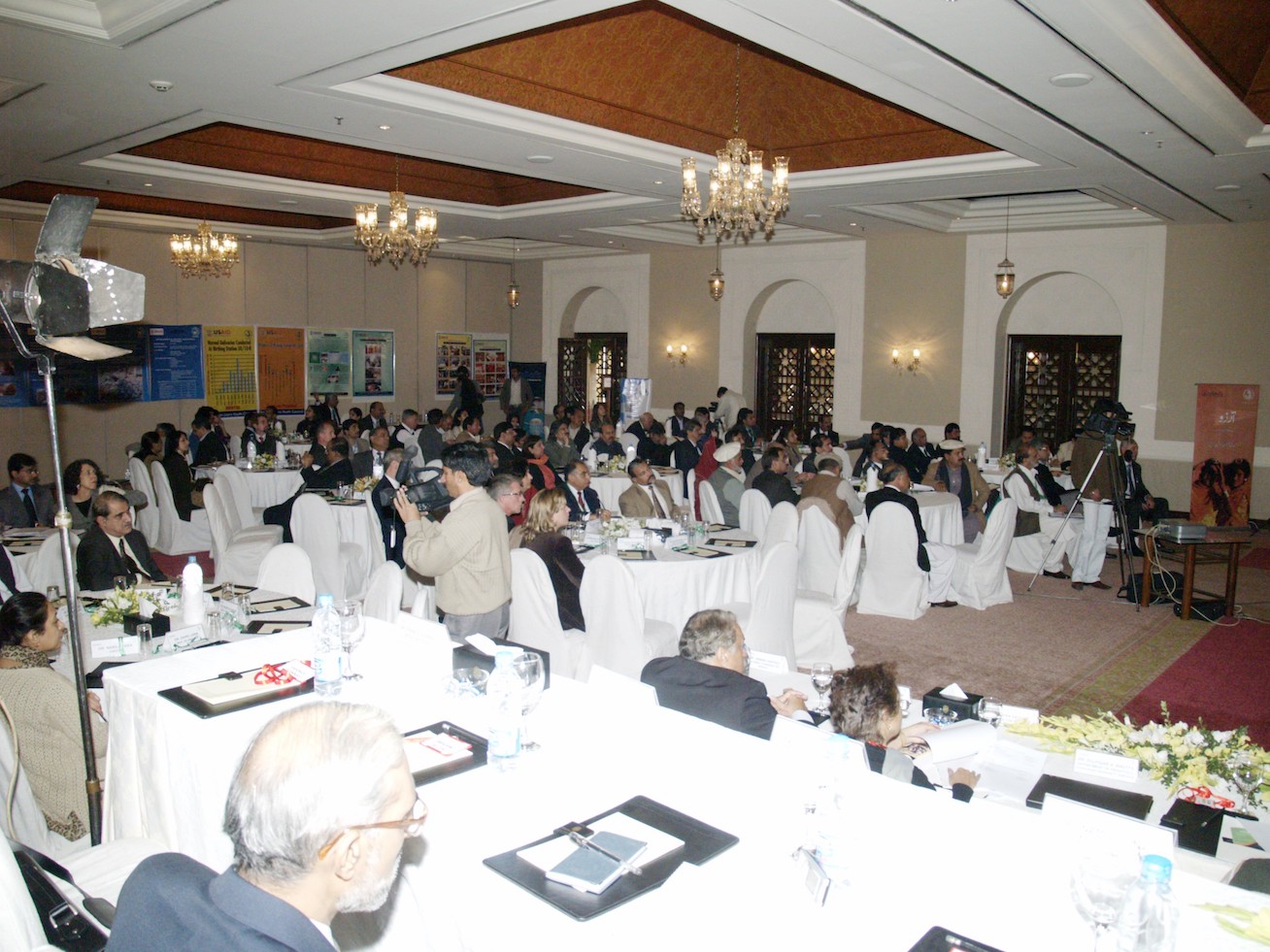
As part of the HC3, Center provided technical assistance to Johns Hopkins Center for Communication Programs and Management Sciences for Health in administering the Social and Behavior Change Communication Organizational Sustainability Tool for the first time and documenting the process in order to provide guidance on its future use. The documentation became part of the assessment package to guide other organisations in the use of the tool.
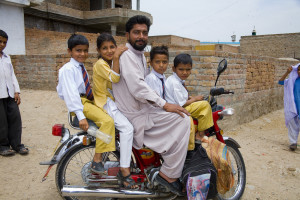
APNA Pakistan [Advocacy for Population and National Advancement] was a concerted advocacy campaign funded by UNFPA and implemented by a consortium led by Contech International .
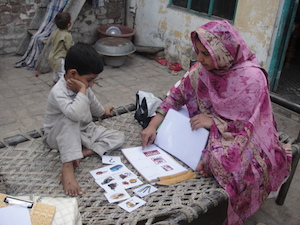
In partnership with Johns Hopkins Bloomberg School of Public Health, Center implemented an exploratory study on the relationship of tobacco advertising with marketing regulations and youth in Pakistan.

Center for Communication Programs Pakistan facilitated and supported UNICEF Pakistan in developing guidelines and detailed training manuals for different levels of training for applying Meena communication material.
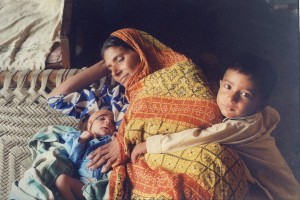
PAIMAN was a USAID-funded programme implemented by John Snow Institute in partnership with Center for Communications Programs. The Program started in October 2004 and completed in December 2010.
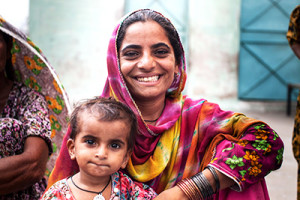
Center for Communication Programs Pakistan, along with Johns Hopkins Center for Communication Programs as lead, Mercy Corps and Rural Support Programmes Network, is implementing the Health Communication Component (HCC) in focus districts of Sindh, Pakistan.
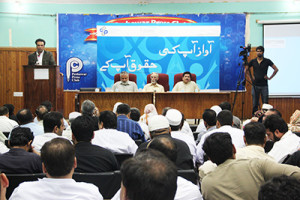
Provincial Health and Nutrition Programme (PHNP), funded by the UK Government's Department for International Development (DFID), aimed at achieving improved Reproductive, Maternal, Newborn and Child Health (RMNCH) services and nutrition results in Punjab and Khyber Pakhtunkhwa provinces over the period of five years (2014 to 2019). The objective of the programme was to increase the demand for better RMNCH services and nutrition and to empower citizens to hold the service providers accountable. The programme prioritised women, girls and children and from underserved backgrounds with the greatest needs. The sub-programme "Empowerment, Voice and Accountability for Better Health and Nutrition" complemented the supply-side interventions of the PHNP by increasing demand and strengthening mechanisms for greater and effective citizen participation and monitoring of health services. Center, along with the Palladium Pakistan, implementing the project and was responsible for design and implementation of the media and communications components.
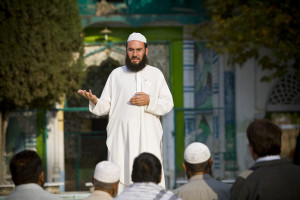
The assignment included development of an engagement toolkit based on the experiences and learnings of Oxfam in Pakistan of involving religious scholars for promotion of sexual and reproductive health and rights issues.

